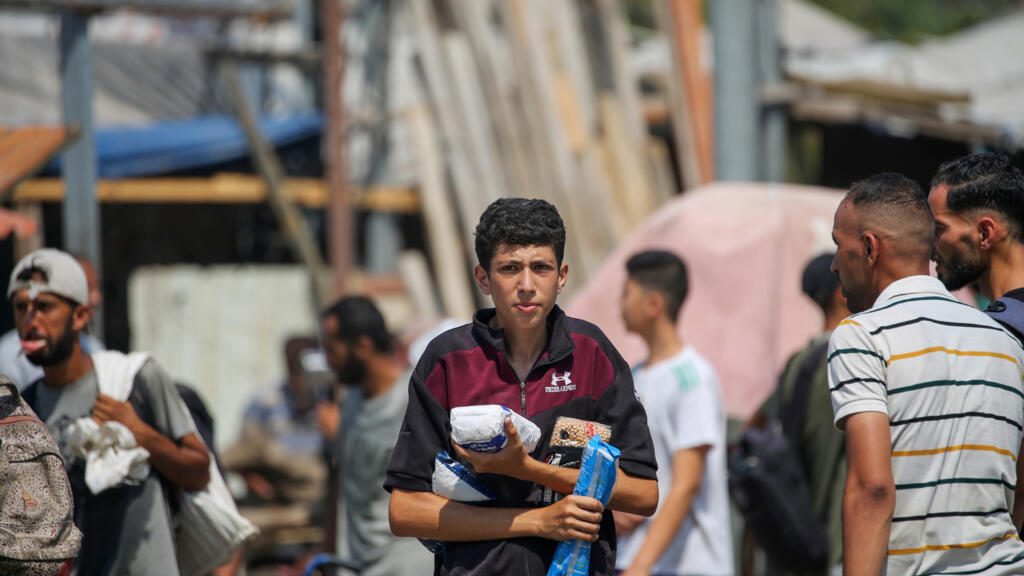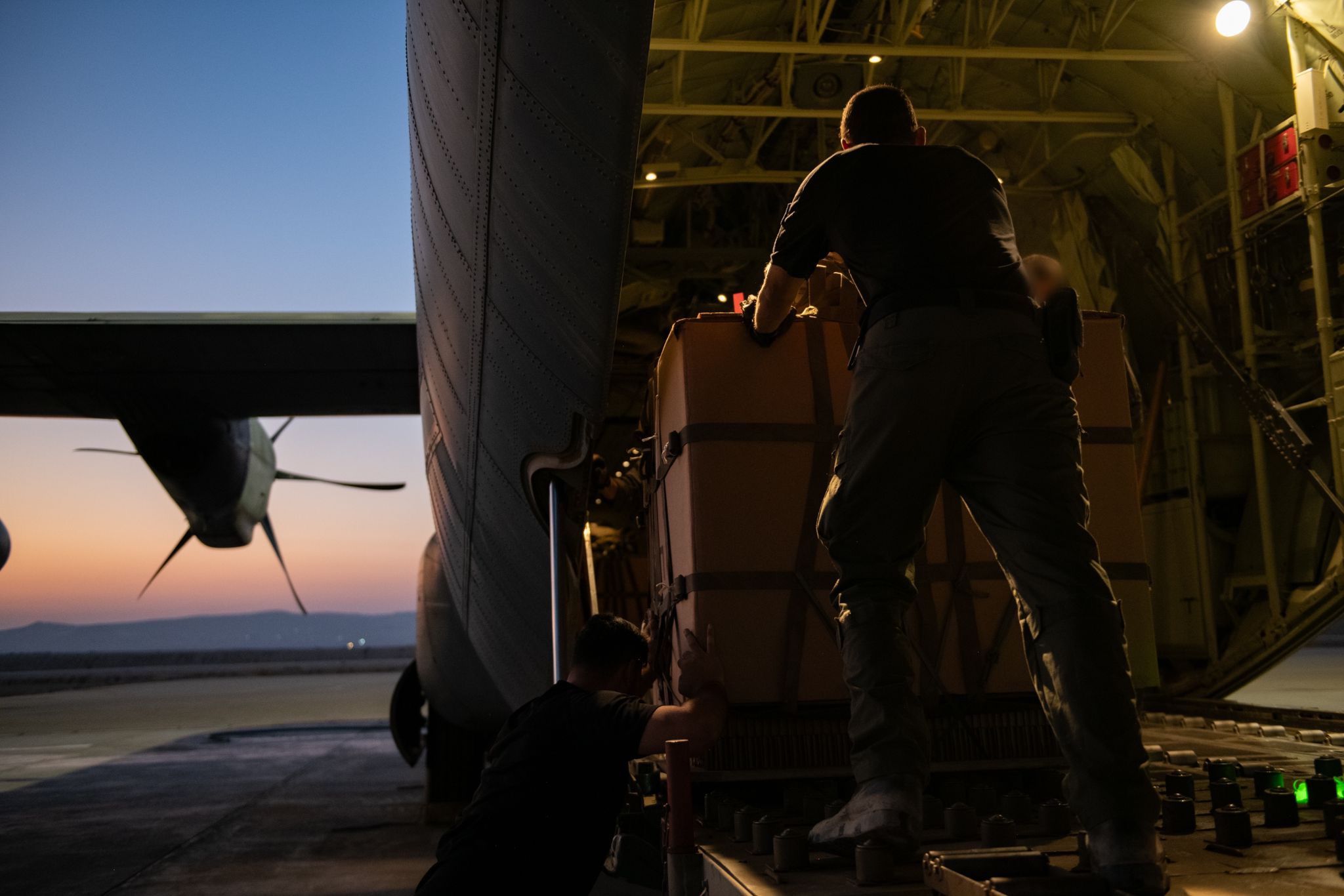Israel announced on Saturday that it had conducted aid airdrops into Gaza, following escalating international condemnation over the severe hunger crisis it inflicted in the Palestinian territory.
This move follows months of tight restrictions on aid entry into Gaza. It also said it would establish humanitarian corridors.
Israel imposed a total blockade on Gaza on March 2 after ceasefire talks collapsed, with only a small amount of aid allowed to resume trickling in by late May. So far, Israel’s military campaign has killed 133 persons having starved to death due to food aid blockade since October 2023, according to Gaza’s health ministry.
Israeli Prime Minister Benjamin Netanyahu says the United Nations is creating an “excuse and a lie” about humanitarian situation in Gaza.
“In every route we choose, we will need to continue allowing minimal humanitarian supplies. We have done this until now,” Netanyahu said during a visit to Ramon Air Force Base in southern Israel on Sunday.
Before Israel announced delivering seven aid packages, the United Arab Emirates had stated its intention to restart aid drops, and Britain also pledged to work with partners like Jordan to assist in these efforts.
Civilian Casualties and Aid Blockade Concerns
The decision to increase aid flow comes as the Palestinian civil defence agency reported over 50 more Palestinians killed in Israeli strikes and shootings on Saturday, some near aid distribution centres.
On the same day, Israeli troops boarded a vessel from the Freedom Flotilla Coalition attempting to deliver supplies to Gaza by sea.
The humanitarian situation in Gaza has significantly worsened, with international NGOs warning of soaring malnutrition rates among children.
On Telegram, the Israeli military confirmed it “carried out an airdrop of humanitarian aid as part of the ongoing efforts to allow and facilitate the entry of aid into the Gaza Strip.”
Israel also stated that humanitarian corridors for UN aid convoys would be designated to deliver “food and medicine,” aiming to improve the situation and “disprove the false claim of deliberate starvation.”
Israel’s foreign ministry announced on X that a “humanitarian pause” would apply to specific parts of Gaza on Sunday morning to facilitate these deliveries.
Humanitarian Community Scepticism and Calls for Overland Access
Despite these announcements, humanitarian chiefs remain deeply sceptical that airdrops can provide enough food to address the severe hunger affecting over two million Gaza inhabitants. They are instead demanding that Israel permit more overland aid convoys.
British Prime Minister Keir Starmer, however, backed the idea of airdrops, vowing to work with Jordan to restart them, and discussed plans for the UK to airdrop aid and evacuate children needing medical assistance with his French and German counterparts.

The UAE’s Foreign Minister, Sheikh Abdullah bin Zayed Al Nahyan, also confirmed the immediate resumption of their airdrops, highlighting the “critical and unprecedented level” of the humanitarian situation in Gaza.
Previous airdrops in 2024 by Western and Arab governments, when land routes were also restricted, were largely deemed ineffective by many in the humanitarian community.
Philippe Lazzarini, head of UNRWA, reiterated this view, stating, “Airdrops will not reverse the deepening starvation. They are expensive, inefficient, and can even kill starving civilians.”
The Israeli military maintains it does not limit the number of trucks entering Gaza and claims UN agencies and relief groups are not collecting aid once it’s inside.
Conversely, humanitarian organisations accuse the Israeli army of imposing excessive restrictions and tightly controlling road access within Gaza.
A separate aid operation through the Israeli- and US-backed Gaza Humanitarian Foundation has also faced international criticism after hundreds of Palestinians were reportedly killed near its distribution points by Israeli fire.
On Saturday evening, the live feed from the Handala boat, belonging to the pro-Palestinian Freedom Flotilla group, showed Israeli troops boarding the vessel as it approached Gaza, with live feeds cutting minutes later.
Israeli forces had also intercepted and boarded another boat from the same group, the Madleen, last month.
Gaza’s civil defence agency reported that Israeli fire killed over 50 people on Saturday, including 14 near aid distribution centres.
Due to media restrictions and access challenges in Gaza, AFP cannot independently verify these tolls and details.
Israel launched its military campaign in Gaza following Hamas’s October 2023 attack, which resulted in 1,219 deaths, mostly civilians.
The ongoing Israeli campaign has since killed 59,733 Palestinians, predominantly civilians, according to the health ministry in the Hamas-run territory.


 Trending
Trending 